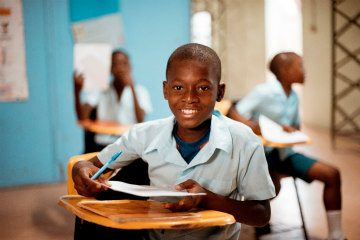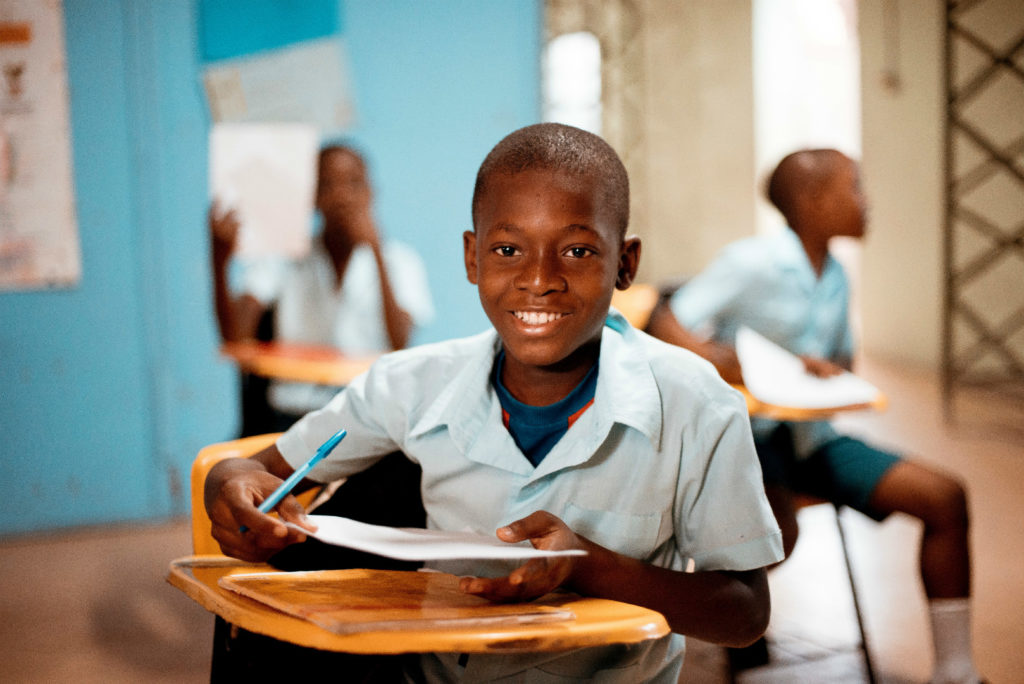Convoy of Hope believes in sustainable solutions for a sustainable future
Published by G20 Interfaith Forum on

Convoy of Hope believes in sustainable solutions for a sustainable future

Convoy of Hope, a faith-based organization with a driving passion to feed the world, seeks to do its part in ending hunger around the world. However, the nonprofit organization doesn’t look to just pass food off the back of a truck to people. Convoy of Hope builds their programs in a way that encourages sustainable development among underserved populations.
Some of the programs include children’s feeding, women’s empowerment and agriculture.
According to Convoy of Hope national spokesperson Jeff Nene, the humanitarian organization feeds a little over 200,000 children every school day throughout its 15 focus countries. Convoy of Hope provides schools with rice-based meals that help the children receive the nutrients they need.
Convoy of Hope chooses to provide the meals to schools purposefully to create a sustainable program where children are not only fed but also receive an education, so that one day, they can have the ability to break the cycle of poverty and feed themselves.
“We believe that one of the reasons why poverty exists is because of a lack of education,” said Nene. “People don’t have the education to be able to get a better job or find a better way through life than what they have. A lot of times, poverty is generational. This is our small attempt at keeping kids in school.”
In multiple countries around the world, parents have to make the decision to either send their child to school or send them out to the street corner to beg for food. Convoy of Hope wants to give parents a reason to send their children to school, knowing that their children will be fed.
“For us, the objective is to feed a child that is starving, but another added result is that we keep that child in school by doing that,” said Nene. “We love feeding those kids, but we don’t want to feed their grandkids.”
Around eight years ago, Convoy of Hope started a women’s empowerment and job training program. The program is currently being conducted in multiple countries, and it is quickly expanding. Last year alone, there were more than 6,700 participants.
“The first thing we want to do is teach these women that they have value and that they are worth something,” said Nene. “Sometimes this can be a gray area culturally because in some cultures, women aren’t worth anything. They’re property. We want to teach women that they are important.”
The program then goes on to teach the women basic business skills such as what are different, productive ways to use or invest profit. At the end of the program, Convoy of Hope helps them develop a business plan and gives each of the graduates seed capital to start their business.
Examples of some of the business ventures include raising chickens, catching fish and selling them in the market, starting a coffee stand, being a seamstress and making jewelry.
“We try to match their interest and ability with a need in their community,” said Nene. They are coming up with a lot of these ideas on their own. It’s pretty amazing.”
Convoy of Hope will then follow up with the women for the next 12 months to make sure that they are following the program and making good decisions.
Agriculture is another big part of what Convoy of Hope does to develop sustainable solutions. A large part of the organization’s agricultural efforts is focused in Haiti, since about 80,000 of the children Convoy of Hope feeds are from Haiti.
Haiti used to be a rice-growing country, but because of deforestation and the fact that so much rice was being imported from other countries, the farmers ultimately decided to stop growing rice.
Convoy of Hope got together a group of 30 farmers in Haiti and taught them best practices and better methods for growing rice. The organization then guaranteed the farmers that it would buy a certain amount of rice back from them, which would then be used to feed their children in local schools.
“It saves us money on shipping costs because we are sourcing the rice locally; it helps the local economy; and it helps get farmers back to work,” said Nene. “Last year we trained over 6,000 people in farming techniques, so that group of 30 has grown quite a bit. It’s another way that we can feed these kids but not feed their grandkids because they are learning how to feed themselves.”
Broadening perspective
Nene believes that when it comes to tackling the world’s hardest issues such as hunger and poverty, it is important that different sectors of society work together to achieve a solution.
“By broadening who you are getting information from and who you’re getting ideas from, I think you can broaden your approach to solving the problem,” said Nene.
The 2019 G20 Interfaith Forum in Japan is focused on bringing together policymakers, faith-based organizations, civil society and others to provide policy recommendations that will affect how likely the world is to achieve the UN’s sustainable development goals by 2030.
“Sometimes we try to make the solution too complicated,” said Nene. “Sometimes we think we have the only answer and the best answer, where I think in most instances, the best answer comes from collaboration.”